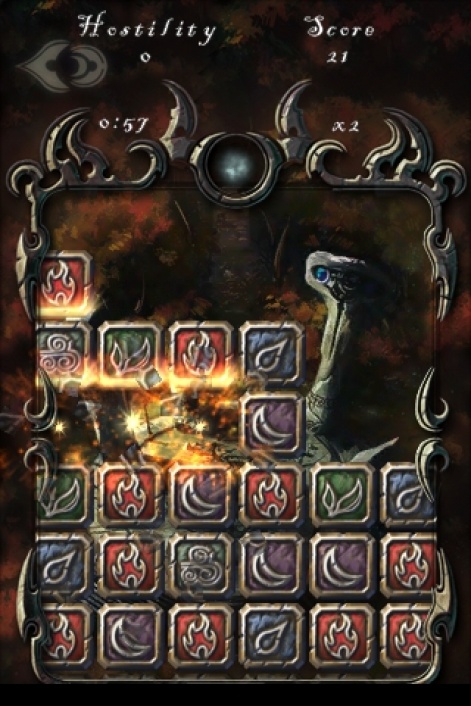
11. Aurora Feint II(Danielle Cassley / Jason Citron)
Platform: iPhone
We thought Puzzle Quest's blend of match-three puzzling and RPG dynamics was innovative, but Aurora Feint II took the idea to the next level on iPhone.
The game's central puzzling is simple and addictive, while the RPG-style spell-learning offers depth around it. But it's the asynchronous online mode where you record a 'ghost' game scoring as high as possible before uploading it to the Aurora Feint community that really shines.
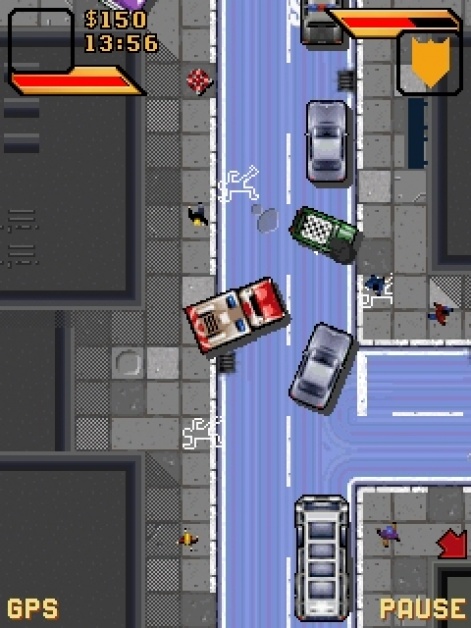
Oh, and there's the ability to sign up friends and battle their ghosts, tying the community together even closer. As a sign of where connected iPhone games are going and also what small indie developers are capable of on Apple's handset Aurora Feint II is top-drawer. Read review
12. Car Jack Streets (I-play)
Platform: Java
Simply making a mobile game that successfully harks back to the original top-down Grand Theft Auto games is some achievement for developer TAG Games. The vared vehicle-handling and believable city is another.
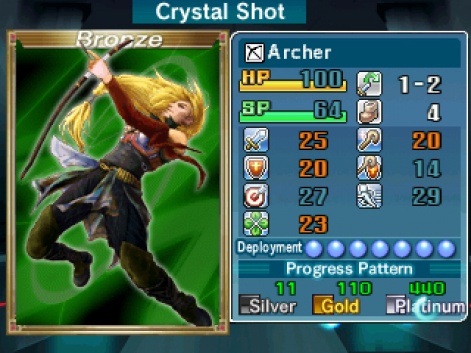
But Car Jack Streets makes it into this list for its low-profile yet innovative use of real-world time. The game sees you tasked with paying off a Mafia debt $50,000 at a time with the twist that each installment has to be paid within a real-world week.
It might be as simple as linking the game's clock to your phone's date and time, but it worked superbly as a way of ramping up the tension, and encouraging repeat plays. We're keen to see how the upcoming iPhone version turns out, too. Read review
13. Song Summoner: The Unsung Heroes (Square Enix)
Platform: iPod
That's as in traditional iPods, not the App Store-supporting iPod touch. Apple's range of iPod games has quietly been increasing throughout 2008, including some real innovation in the area of music and gaming.
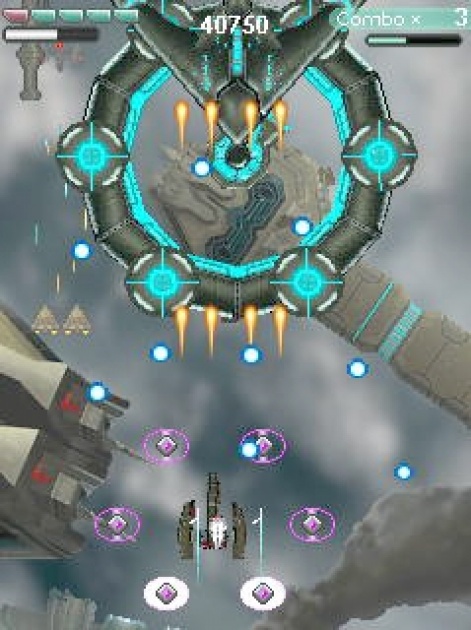
Song Summoner is a great example. It's a turn-based tactics game of the kind familiar to handheld gamers, but with the twist that it lets you turn the songs stored on your iPod into characters, who can then be sent into battle.
Is Amy Winehouse's version of 'Valerie' a better fighter than The Zutons'? Is David Bowie's 'Heroes' a hero? Does Jay-Z have '99 Problems' but his magical abilities ain't one? You can waste hours trying to find the perfect battlers from your music collection.
if Apple opens up its iPhone SDK a bit more, we have high hopes for this kind of feature on iPhone and iPod touch in the future, too. These devices have music on why not use it? Read review
14. Space Impact: Kappa Base (Nokia)

Platform: N-Gage
At first glance, Space Impact is a familiar-feeling vertically-scrolling shoot 'em up, distinguished mainly by some neat weapon-customisation options, and a fairly ninja difficulty level.
However, the game's innovation comes with its use of the N-Gage Arena community, which goes beyond pure high-scores. Players are invited to complete dedicated Arena levels, and then upload their scores to the rankings.
Meanwhile, Nokia also announced plans to bring Clans to Space Impact, bringing a feature hitherto confined to PC-based MMORPG games to mobile. It was an imaginative approach for a game genre that hasn't traditionally focused on connectivity. Read review
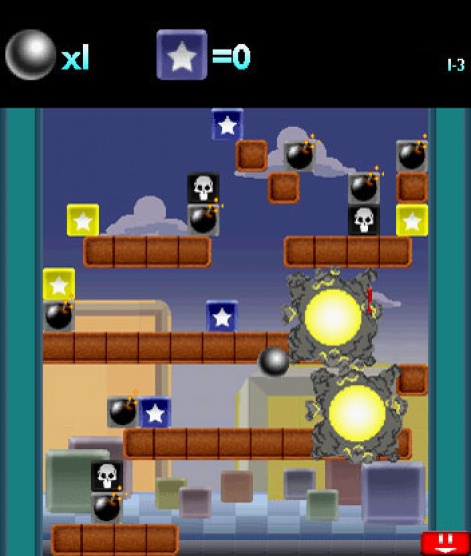
15. Live Poker (Zynga)
Platform: iPhone
There are already several multiplayer poker games on the iPhone, so why pick this one out especially as it was late to the party compared to its rivals?
Well, Live Poker is the first iPhone game to use Facebook Connect, the scheme launched by the social network that allows players to sign in using ther Facebook details, and thus tie into their existing friend lists and data feeds.

We predict that Facebook Connect will be a significant technology in iPhone gaming in 2009, as more publishers use it particularly those with roots in the social gaming space like Zynga, SGN and Playfish. In that sense, Live Poker is a true pioneer. Read more
16. Boom Blox (EA Mobile)
Platform: Java
Alongside Spore Origins (No. 2 in this list), Boom Blox showed EA Mobile flexing its publishing muscles and trying to push connected Java gaming despite the less-than-effusive response from some operators.
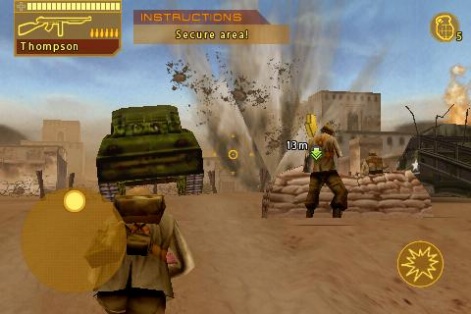
Boom Blox's connectivity also tapped into the nascent user-generated-content trend in gaming, allowing players to create their own puzzle levels, then upload them to share with the community.
There's been gallons of hype around LittleBigPlanet on PS3 this year, and deservedly so (even if we still can't actually make anything half-decent in it). Boom Blox is necessarily not on the same scale as Sony's flagship console title, but it nevertheless showed that UGC could be just as relevant to the mobile games industry. Read review
17. Party Island (Digital Chocolate)
Platform: Java / Facebook
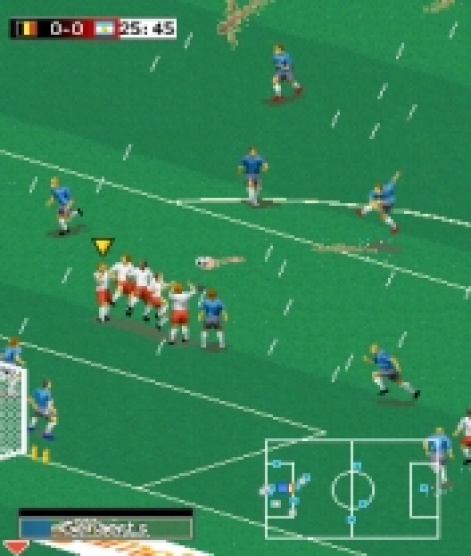
Digital Chocolate has been talking up connectivity for some time now founder Trip Hawkins was one of the first mobile games industry execs to make a public link between mobile games and social media, while the team at DChoc took Tower Bloxx to Facebook while most of their rivals still had their heads focused on phones.
But it's the recently-debuted Party Island games that are making a more coherent stab at how mobile and online social networks can be tied together with a gaming community.
The games are simple: bowling and pool for example. But the idea of wrapping a cross-platform community around them, which ties into your real friends as well as gaming strangers, has real value for the future. Read more
18. Brothers In Arms: Hour of Heroes (Gameloft)

Platform: iPhone
The fightback for premium iPhone titles has begun, with Gameloft at the forefront, aiming to justify why some games are worth a £5.99 App Store pricepoint. Just check the glossy intro movies for this, Hero of Sparta and Ferrari GT: Evolution for a statement of intent.
They're not why Brothers In Arms' first iPhone edition is in this list, though. What's innovative about the game is the way it strives to overcome iPhone's lack of physical buttons in a game genre that relies on them on console.
Specifically, the game's combination of two virtual analogue pads is a valiant attempt to overcome the problems of bringing games more at home on a Sixaxis joypad to iPhone and iPod touch. It may not be for everyone, but the control experimentation in this game will serve Gameloft well for 2009. Read review
19. Real Football 2009 (Gameloft)
Platform: Java
This listing really covers two games Real Football 2009 and its Real Football Manager Edition 2009 spin-off because the innovative thing was the link between the two.
After building up your squad of players in the management sim, you can export them to be used in the main Real Football game. It sounds simple, but was a) technically impressive, and b) a good incentive for people to buy both games in an industry that could do with more repeat purchasers.
Oh, and it had Bluetooth multiplayer, too (a feature also seen in rival Pro Evolution Soccer 2009). Read review
20. Toy Bot Diaries Entry 1 (IUGO)
Platform: iPhone
One of the problems with iPhone gaming in these early months is that a lot of games and game genres originally designed for joypad or keyboard 'n' mouse are being crowbarred into a device that only supports touch and tilt controls.
Toy Bot Diaries Entry 1 (and its sequel) are examples of games finding ways to make old genres feel fresh and natural with the iPhone interface. It's a platform-puzzler that relies solely on tilting and tapping to control the titular toy bot, with no need for a virtual D-pad or buttons.
It's elegant user-interface innovation, rather than anything startlingly new in terms of gameplay or technology. And before you ask, no, we're not contradicting ourselves by highlighting this game AND Brothers in Arms.
Well, maybe just a bit. But the fact that developers are continuing to think hard about how best to control mobile games on touchscreen handsets is worth singling out. Read review
Read the third part of this feature.





















